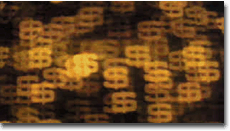 C
C
ash flow. It’s the name of the game in any textile business. That is, in any textile
venture that wants to stay in business. Yet, many textile owners get so caught up in the day-to-day
operations of the business that they fail to devote enough time to “big picture” cash flow
management. Cash flow pressures have been greatly heightened in the industry by the offshore
manufacturing boom, increased competition and the capital intensive rush to automation.
Alice Magos is the advice columnist for America Online’s Business Owner’s Toolkit. In her “
Ask Alice” column, she is often queried about cash management concerns by textile business owners.
Magos contends that a focus on enhancing cash flow can keep a textile company up and running, even
if the red ink has been flowing.
“Cash flow is king,” advises Magos. “Even if profitability has eluded you, survival can be
attained if cash flow is maintained. Planning around cash flow is essential.”
Effective Cash Management
In the good old days in the textile industry (pre-NAFTA), one always effective strategy was to
increase sales. A well-run company could closely manage its gross profit margin and operating
expenses. Consequently, more sales meant more profits. This credo does not always hold true today,
however. In fact, many textile firms have found the opposite to be true as higher sales have led to
bigger losses.
As we enter the new millennium in the textile industry, there is a new cash management game.
In order to play, you often must find ways to enhance cash flow without increasing sales. Magos
refers to this practice as “bootstrapping.”
“Bootstrapping is the first line of defense for a textile business experiencing cash flow
problems,” explains Magos. “Bootstrapping is a buzzword that basically means generating needed
funds by deftly managing your cash inflows and outflows. Improving cash flow should be a daily
task, like housekeeping. Monitoring, forecasting and analyzing cash flows is essential to liquidity
and profitability, even for the Fortune 500 crowd.”
Following are five practical suggestions to follow that will provide immediate enhancement to
your bank balance.
Accounts Receivable Collection
Unless factoring is used, the typical textile firm has a significant portion of its balance
sheets tied up in receivables. And slow accounts receivable collection can cause a major drain on
cash flow.
For instance, a textile company with $12 million in annual sales generates about $1,000,000
per month in gross revenue. If customers are paying 30 days from the date of invoice, then the
company has accounts receivable of about $1,000,000 (30/360 x $12 million) at any given time.
However, if customers generally are 10 days behind in payments to the textile company, accounts
receivable would be approximately $1,333,333 (40/360 x $12 million). This represents a direct drain
on cash flow of $333,333.
Brad Moser is a partner with Gilliam, Coble & Moser LLP, Burlington, N.C. His CPA firm
works with more than 25 textile-related companies in the Piedmont region of the state. Moser says
that accounts receivable collection is a key to successful cash flow management for any textile
business.
As Moser points out, good accounts receivable management is a two-step process. “All invoices
should be sent on a timely basis,” he says. “Many small business owners lose cash flow by delaying
the sending of invoices. And, of course, it is vitally important to follow up with a good
receivables collection program.”
If you already have a good accounts receivable collection program in place and are still
having major cash flow problems, factoring might be your next step. Many textile business owners
resist factoring due to the perceived high costs and a fear that their customers will resist. And
while factoring fees and interest rates are considerably higher than those paid for conventional
bank asset-based lending lines of credit, the cash flow improvement can be dramatic for a textile
concern.
Some other benefits of factoring include:
• elimination of a credit department could reduce the number of employees, as well as
charge-offs from uncollectible receivables;
• may allow your company to take discounts from suppliers;
• credit information available on customers in a broader geographic range;
• faster growth; and
• factoring does not count as debt on your balance sheet and can free up availability for
additional bank borrowings for capital expansion and other needs.
Improve Profit Margins
 No
No
matter how you slice it, there are three ways to improve your gross profit margins (calculated by
subtracting your direct costs from your total sales revenues) — raise prices, reduce direct costs
and change your product mix. Raising prices can cause a catch-22 in that you may lose sales. But if
you take a sensible approach to price increases (i.e. pass along price increases from your
suppliers) and stay in line with the competition, you should be able to periodically raise the
prices on your different products and services.
There are other ways to improve gross profit margins. Job cost every potential order to
ensure its profitability. If you can’t make money on an order, don’t take it or consider
outsourcing it to someone who can produce the goods profitably.
Check your control system for ordering inventory and supplies. It is recommended to
centralize this process to ensure efficiency. Every textile company should have one person who is
dedicated to ordering raw materials and supplies for the plant and office. Along the same lines, it
is very important to return damaged materials immediately.
Change your “product mix.” Push the more profitable items. For instance, if you have just
installed a new wet processing technology that enhances profitability, shift your marketing efforts
to this area so your existing and potential customers will consider you as a source.
Consider adding ancillary products. If your company manufactures women’s hosiery, and you are
already selling to one or more super retailers, find a source for another related product (i.e.
another line of women’s hosiery or a line of men’s hosiery) to sell. With the growing industry
trend toward outsourcing, you can leverage your marketing efforts by finding another source for
certain items and reselling them to your existing customers.
Take Advantage Of Terms
While it is certainly important to pay suppliers in a timely manner, it is generally not a good
idea to pay early. Yet many textile owners pride themselves in paying suppliers 10 days before
bills are due.
If you purchase anything on terms or on account, this is one area that procrastination pays.
Wait until the day a bill or invoice is due to pay it. Your cash flow will be enhanced, and your
valued supplier relationships will not be harmed because you will still be paying on time.
“Take advantage of the terms your vendors will allow,” Moser said. “Don’t abuse the
opportunity to delay payment, but you also don’t want to pay as soon as you receive the invoice.”&
amp; amp; amp; amp; amp; amp; lt; /font>
Controlling Operating Expenses
It is often the intangible operating expenses that are paid the least attention by textile
business owners but which drain cash flow the most. Areas such as personnel expenses, utilities,
insurance and telephone service can substantially deplete cash flow without the owner even
realizing it is happening. Long-distance telephone service can be shopped. There have been some
great long-distance telephone service wars going on over the past few years.
Utilities expenses can be lowered by minimizing the use of electricity and by adjusting the
plant thermostat upward or downward a few degrees during the summer and winter months. In fact,
most utility companies offer a free on-site consultation to help you reduce your energy usage.
And there are several different ways to save on insurance costs. Even if you don’t own your
own building, you still have to purchase insurance for your equipment, inventory and other
contents, as well as for workman’s compensation and life, health and disability insurance. And
whether or not you provide these benefits for your employees, you must maintain them on yourself.
Different insurance companies have varied rates for the myriad of insurance services offered, and a
little shopping might go a long way in enhancing your bottom line.
Personnel expenses can often be the hardest to control and can really sap cash flow; however,
if you will keep a close eye on employee downtime and minimize overtime, you will see positive
results in the bank balance.
“Payroll costs are big for any textile business,” Moser said. “Take a look at peak times and
make sure they are covered. But during downtimes, try to cut back on the number of employees on
hand. And a close eye should always be kept on overtime.”
In fact, Moser said that a close eye should be kept on all operating expenses. He suggests on
an at least annual basis, taking a close look at the income statement and picking out the five
biggest expense items.
“Figure out which of the five biggest expense items can be cut back during the coming year,”
advises Moser. “In fact, you should periodically review the entire income statement and ask
yourself if some of the expenses are needed at all. For instance, if you are having your facility
cleaned weekly, you might be able to save a lot of money by cutting back to every other week. The
same could be true for, say, waste removal.”
Go See Your Banker
Nearly all textile business owners use outside financing to help start or expand the business.
But many don’t realize that banks are sometimes flexible on repayment terms. If you are looking for
ways to enhance cash flow, more favorable loan terms might just be the ticket.
For instance, on a $600,000, four-year loan at 9 percent, the monthly payment would be about
$15,000. By simply extending that same loan to a five-year payback, the monthly obligation drops to
$12,500. This translates to a monthly savings of $2,500 and annual cash flow enhancement of
$30,000.
A second key cash flow enhancement tool offered by your bank is cash management services. If
your textile company isn’t currently set up on a cash management program with a bank, ask your
banker to make a cash management presentation.
Tom Bennett is manager of the Treasury Management Services Group for First Charter, Concord,
N.C. During his 14 years in banking, Bennett has worked with dozens of textile companies and says
there are a myriad of excellent cash management services now available to textile concerns that
will enhance cash flow.
“There is much more available to smaller textile companies than there was even five years
ago,” Bennett said. “Most textile companies with which I have worked use factoring or asset-based
lending to finance accounts receivable. Bank cash management services are a critical component in
concert with this type of borrowing to maximize cash flow for the company.”
As an example, Bennett sites the ability of a bank to analyze “mail float” for a customer. He
recently called on a textile company in a rural location. Some of their checks were taking as long
as 10 days to arrive at the company’s doorstep. Then because of the rural location, the bookkeeper
would sometimes wait a couple of days before making a trip to the bank to deposit the funds.
“We advised this client to set up a lockbox in Charlotte, a major city that was nearby,”
Bennett said. “The cash flow improvement was significant because all funds were becoming available
several days sooner.”
According to Bennett, some of the cash management services offered by banks include:
• On-Line Balance Reporting And Funds Transfer — Allows you to access your business accounts
with an on-site PC terminal and modem. Says Bennett: “Good, timely cash management information
allows the textile company to make wiser, quicker decisions.”
• E-Commerce — Bennett says more and more companies are using business-to-business
e-commerce. Cash flow is enhanced since the textile company agrees with the customer when the
invoice will be paid electronically, thereby eliminating late payments.
• Account Reconciliation — A listing of your checks paid in order of serial number or date
that is available on paper, tape, diskette, CD or by data transmission via the on-site PC terminal
and modem referenced above.
• Automated Clearing House (ACH) Services — Facilitates electronic funds transfers to replace
paper transactions and wire transfers. ACH can also be used to initiate debits and credits
electronically.
• Automatic Investment Plans — Also known as “sweep accounts,” these plans automatically
sweep collected DDA (demand deposit account) funds that exceed your target balance to eliminate
service charges into overnight investments such as Master Notes and Repurchase Agreements. These
generally offer more attractive yields than those offered by money market accounts and CD’s.
• Cash Concentration — This service moves funds from your company’s accounts at other
financial institutions to your primary account. This service is ideal for multiple location textile
businesses that do not have access to the same bank in each location.
• Controlled Disbursement — This service eliminates idle balances on deposit in anticipation
of checks clearing. It improves cash forecasting and earnings potential and provides absolute
control over disbursements.
• Inclearing Report — Bennett singles this service out as one of the most beneficial
controlled disbursement services offered by banks. The Inclearing Report is provided by the bank
via the Federal Reserve and includes all checks that will clear that night.
• Lockbox — With a lockbox, the textile company’s customers mail payments to an exclusive
Post Office Box. The bank processes the mail, deposits checks and sends remittance documents and
copies of the checks to the textile company. The deposit amount is reported daily to the firm.
According to Bennett, a lockbox is usually required in factoring and asset-based lending
arrangements.
• Imaged Lockbox — This service allows the textile company to go on-line and view an image of
every item that goes through its account each day. Bennett sites a hosiery company that uses this
service, even though the annual fees involved were $8,000 higher than for the same information
availability on paper.
• Letters Of Credit — If you are dealing with a supplier who requires a deposit for goods
shipped, a letter of credit could be an effective cash management tool. Most suppliers will readily
accept bank letters of credit (the bank substitutes its credit rating for yours and charges a fee
for the service) in lieu of cash deposits on orders taken.
With the challenging trends facing the textile industry, an effective cash management
strategy is critical to the company’s ability to be a survivor. It is hoped that some of these
suggestions will aid you in keeping the cash flowing into rather than out of your textile
business.
What Should You Do With Your Excess Cash Flow?
If you are generating excess cash flow in your textile concern, the next key question is “what
should you do with it?” The decisions you make can be critical in this area. Ken Anderson, who has
more than 15 years of experience with The Principal Financial Group, advises that effective cash
flow management starts with the objective of the cash.
“The first thing I ask the textile business owner is ‘what will the cash be used for,’”
explains Anderson. “It is important to know if the excess cash will be used to pay taxes, fund
expansion or buy equipment.”
“The key is to focus on whether the excess cash is short term, mid-range or long term,”
continues Anderson. “This directly affects the various investment options for the company. And for
any term, I perform a risk assessment to find out the risk tolerance of the business owner. Any
investment strategy must be in line with the risk tolerance level of the business owner.”
If the textile company is going to need access to the cash within one to three years.
Anderson says that is a short-term need. Anticipation that the cash will be needed within
three to five years represents a mid-range need. A long-term investment strategy should be employed
if the business will not need the excess cash for at least five years.
“For short term excess cash, I recommend safe investments,” says Anderson. “In a case like
this, you won’t have time to regain the funds if they are lost in a higher risk investment.”
Anderson recommends three basic options for short-term excess cash flow — government secured
treasury bonds, bank certificates of deposit and high-grade commercial bonds.
“With a mid-range strategy, you can be a little more aggressive,” advises Anderson. “If the
money isn’t needed for three to five years, some can be put in equities. But I recommend only blue
chips with a high dividend payout level. Even with a mid-range strategy, however, only a portion of
the funds should be put in equities.”
With a long-term investment strategy, Anderson recommends a multi-asset, multi-manager,
multi-style, multi-market asset allocation approach. This enables the textile business owner to “
hedge” investments over a long term by balancing a standard deviated risk level with acceptable
returns. Anderson sites the Frank Russell Investment Management Company, Tacoma, Wash., as the top
company in this field.
In situations in which sustained excess cash flow levels are anticipated, Anderson also
recommends that the textile business owner consider executive compensation and profit sharing plans
to make sure the cash flow remains strong.
“Sharing excess cash flow with employees and key executives is a form of investment in that
you are investing in your people,” says Anderson. “It increases employee morale, which typically
leads to better operating efficiency and lower turnover. Your people will work harder for you if
they know you are looking out for them.”
Anderson sites incentive pay, employee bonuses and qualified retirement plans such as 401(K)
and pension plans as excellent benefits to offer to keep your good employees from leaving. He also
says that most businesses have a few key senior-level employees who are vital to the success of the
operation and who are primarily responsible for the excess cash flow of a business. Explains
Anderson: “Ask yourself the question, ‘is there anyone in the organization whose loss would cripple
my operation?’ If there are one or two or more, put in a plan to incent them to stay.”
For senior-level employees, Anderson says that non-qualified retirement plans are the most
effective and efficient tools to keep them on board. In fact, non-qualified retirement plans are
often referred to as executive compensation plans, because they are usually offered only to the
owner or the senior management team of a business. “With a non-qualified plan, you pick and choose
the benefits and who will have something special done for them,” says Anderson.
Anderson says there are a number of different non-qualified plans that can be undertaken.
However, he sights three different plans that are typical for small businesses. Below is a quick
overview of these three options. An insurance agent can explain them to you in far more detail.
According to Anderson, an executive bonus plan is common for a new or emerging small
business. The business pays a tax-deductible bonus which is used to pay life insurance premiums,
deducts the bonus as a normal business expense and reports it as “other compensation” on the
employee’s W-2. The employee owns the policy and reports the bonus as taxable income.
It is advantageous for the key employee in several ways. An executive bonus plan can be
custom-fit to meet the employee’s needs and objectives, it provides insurance protection for a
spouse and/or family in the event of death, it provides potential cash-value growth that may
supplement retirement income and taxes are paid only on the premium amount.
As the owner of the policy, the key employee holds the rights to all cash dividends, policy
loans and withdrawals. In short, an executive bonus provides an easy way to provide a benefit other
than cash for a small business looking to reward a few key employees or even just the owner.
Anderson says that split dollar plans are more common with maturing small businesses.
The company pays all or part of the premium for a key employee’s life insurance policy. A
portion of the death benefit and policy cash values (equal to the premium paid by the employer) is
assigned to the business. The employee pays a minimal income tax on the cost of the policy’s
current economic benefit.
At a future date, usually triggered by the retirement of the employee, he or she uses cash
values to repay the premiums the company paid. The split-dollar agreement is terminated, and the
policy and its benefits belong solely to the employee.
According to Anderson, deferred compensation delays payment of a portion of a highly paid
employee’s income (and taxes) until retirement when his/her income level presumably will be lower.
It also provides funds in case of early retirement or disability.
Editor’s Note: J. Tol Broome Jr. is a freelance business writer and has been in banking for 17
years in commercial lending. He is currently a regional loan administrator with BB&T,
Winston-Salem, N.C. Broome’s work has appeared in numerous business and trade publications.
April 2000

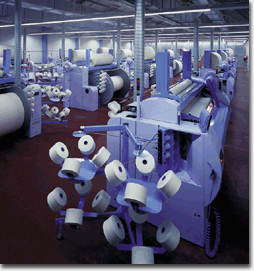
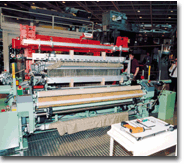 Another
Another C
C No
No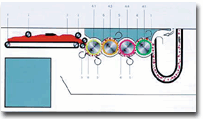 A
A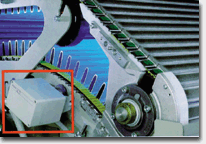 High-production
High-production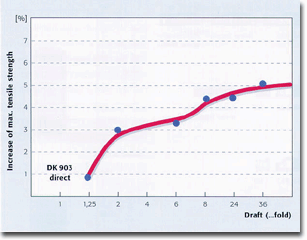
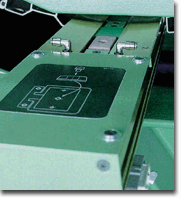 Combing
Combing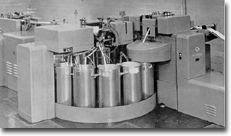
 C
C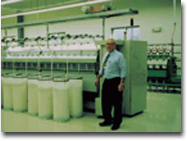 The
The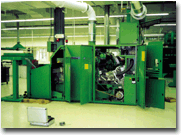 Consolidating
Consolidating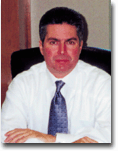 Customer
Customer


